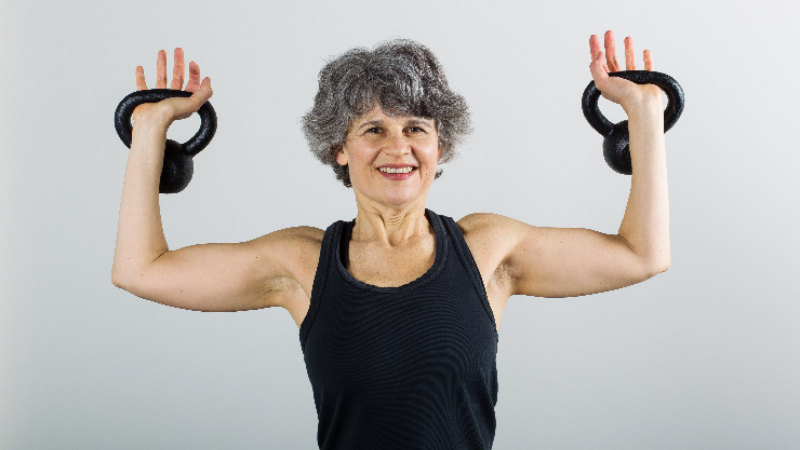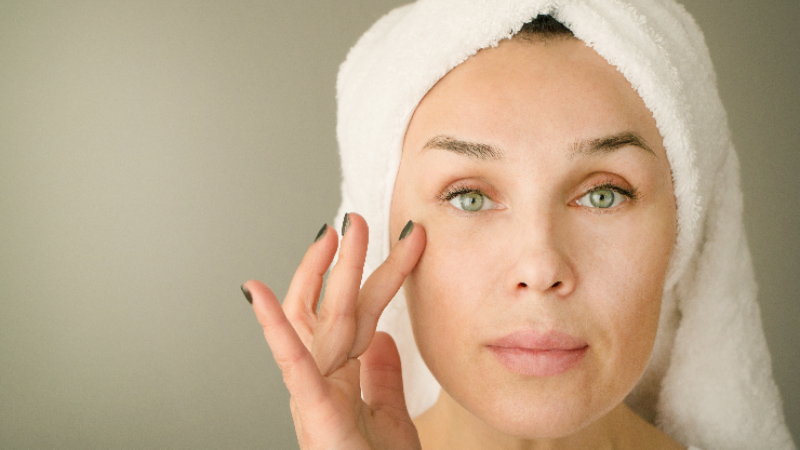
Menopause is a natural part of every woman's life, but most women dread and worry about it. They only know hearsay and what their own mothers, sisters, and older friends have experienced. The hot flashes, the heart problems, osteoporosis—yes, all can be symptoms of the lowered estrogen production that results in menopause. But every woman experiences menopause differently, and even women in the same immediate family can have very different experiences. Some symptoms and consequences of menopause may be surprising to many women—hot flashes are actually the only symptom that most women report experiencing.
While so many women dread menopause, remember what you will gain! No more contraception to worry about. No more pregnancy scares. Do you suffer from heavy bleeding during your period? Bad cramps? Do you struggle with various PMS symptoms every month? That will all end when you hit menopause.
Menopause actually refers to the time when you have gone 12 months without a period. The years before that, when you have the symptoms of coming menopause, are called perimenopause. The years after menopause are called postmenopause, and during the first few years post menopause any hot flashes should lessen. The average age of natural menopause is 51, the usual range is 45-55, but can be earlier or later for some women.
Contraception
Until your doctor confirms that you have reached menopause—defined as 12 months without a period with no other clear cause—don't give up on contraception. During perimenopause your periods may become irregular and you may skip some or many—and those irregular cycles do lead to unexpected pregnancies. Late-40s pregnancies can be successful, but there are also risks.

Bone Health
Many women experience significant bone loss during their first few years postmenopause, because the decline in estrogen affects the amount of calcium in your bones. This is why so many postmenopausal women develop osteoporosis. There are ways to slow this—weight-bearing exercise (power walking works!) and weight training are the easiest and most effective. A healthy well-rounded diet high in calcium, Vitamin D supplements, and avoiding alcohol and smoking are all important. You want to develop good habits and a routine before menopause—talk to your doctor if your vitamin D levels have always been low, or if you are especially concerned due to family history or other reasons.
Heart Health
Menopausal symptoms can include heart palpitations and dizziness; these are normally temporary, but always check in with your doctor if you are concerned or they seem too frequent. Postmenopause, lower estrogen levels reduce artery flexibility, which can affect blood flow. Estrogen also helps control LDL (bad) cholesterol, so your cholesterol level may go up. You can combat these effects by staying at a healthy weight, getting regular exercise, eating a healthy well-rounded diet, and not smoking.

Dry Skin
Your dropping estrogen levels will also drop your skin’s oil production. If your skin gets drier, it’s time to change moisturizers or try a skin oil. And always drink plenty of water to stay hydrated. This is actually one of the easiest symptoms to combat.
Bladder Control
Yes, it's true—menopause can affect bladder control. Keep up with those kegels!
Many of the rumors you hear about the symptoms and consequences of menopause—heart disease, weight gain, osteoporosis, horrible dry skin—are based in truth. However, many of these can be lessened by following a basic regimen of weight-bearing exercise, healthy eating, no smoking, and staying hydrated. But the time to start these habits—if you haven’t already—is in the years before menopause. Don't wait until your doctor does a bone scan and finds your calcium levels have dropped! If your menopause symptoms are causing you a lot of trouble, don't suffer in silence. Go see your doctor, or ask around to find a gynecologist who specializes in menopause and its symptoms.
